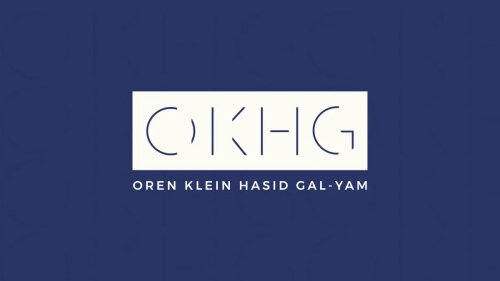Best Technology Transactions Lawyers in Israel
Share your needs with us, get contacted by law firms.
Free. Takes 2 min.
Or refine your search by selecting a city:
List of the best lawyers in Israel
About Technology Transactions Law in Israel:
Technology Transactions in Israel refer to the legal aspects of transactions involving technology. This can include licensing agreements, software development contracts, data protection, intellectual property rights, and more. It is essential to have a clear understanding of the legal framework surrounding Technology Transactions to protect your interests and ensure compliance with the law.
Why You May Need a Lawyer:
There are various situations where you may require legal help in Technology Transactions, such as negotiating contracts, protecting your intellectual property rights, resolving disputes, and ensuring compliance with data protection laws. A lawyer specializing in Technology Transactions can provide valuable legal advice, draft contracts, represent you in negotiations, and help you navigate the complexities of technology law.
Local Laws Overview:
Israel has robust laws and regulations governing Technology Transactions, including the Protection of Privacy Law, the Copyright Law, and the Patents Law. It is essential to understand these laws and how they apply to your specific situation. Additionally, Israel is known for its strong protection of intellectual property rights, making it a favorable jurisdiction for technology companies.
Frequently Asked Questions:
1. What are the key considerations in negotiating a technology licensing agreement?
In negotiating a technology licensing agreement, key considerations include the scope of the license, payment terms, intellectual property rights, warranties, indemnification, and dispute resolution mechanisms.
2. How can I protect my intellectual property in Technology Transactions?
To protect your intellectual property in Technology Transactions, you can use confidentiality agreements, trademarks, copyrights, patents, and trade secrets. It is essential to work with a lawyer to develop a comprehensive IP protection strategy.
3. What are the data protection laws that apply to Technology Transactions in Israel?
In Israel, the Protection of Privacy Law regulates the collection, use, and disclosure of personal data. Companies must comply with data protection principles, obtain consent for data processing, and take measures to secure data against unauthorized access.
4. How can I resolve a dispute related to a Technology Transaction?
Disputes related to Technology Transactions can be resolved through negotiation, mediation, arbitration, or litigation. It is advisable to include dispute resolution clauses in contracts to provide clarity on the process for resolving disputes.
5. Can I terminate a technology contract if the other party breaches the agreement?
If the other party breaches a technology contract, you may have the right to terminate the agreement, seek damages, or specific performance. It is essential to review the contract terms and consult with a lawyer to understand your options.
6. What are the benefits of working with a lawyer in Technology Transactions?
Working with a lawyer in Technology Transactions can help you navigate complex legal issues, protect your rights, negotiate favorable terms, and ensure compliance with the law. A lawyer can provide valuable legal advice and representation to safeguard your interests.
7. How can I ensure compliance with technology laws and regulations in Israel?
To ensure compliance with technology laws and regulations in Israel, you should stay updated on legal developments, conduct regular compliance audits, train your employees on legal requirements, and seek legal guidance when necessary.
8. What are the risks of non-compliance with technology laws in Israel?
Non-compliance with technology laws in Israel can result in fines, penalties, reputational damage, lawsuits, and injunctions. It is crucial to follow legal requirements and implement compliance measures to mitigate risks and protect your business.
9. Can a lawyer help me draft a technology contract for my business?
Yes, a lawyer specializing in Technology Transactions can help you draft a technology contract tailored to your specific needs and ensure that it complies with legal requirements. A well-drafted contract can protect your interests and prevent disputes in the future.
10. How can I find a reliable lawyer for Technology Transactions in Israel?
To find a reliable lawyer for Technology Transactions in Israel, you can ask for recommendations from colleagues, conduct online research, check lawyer directories, and schedule consultations with potential candidates. It is essential to choose a lawyer with expertise in technology law and a track record of success in representing clients in similar matters.
Additional Resources:
For additional resources related to Technology Transactions in Israel, you can consult the Israel Bar Association, the Ministry of Justice, the Israel Innovation Authority, and legal publications specializing in technology law. These resources can provide valuable information, guidance, and support for individuals seeking legal advice in Technology Transactions.
Next Steps:
If you require legal assistance in Technology Transactions in Israel, it is advisable to schedule a consultation with a lawyer specializing in technology law. A lawyer can assess your situation, provide legal advice, draft contracts, negotiate on your behalf, and represent you in legal proceedings. By working with a lawyer, you can protect your interests, mitigate risks, and ensure compliance with the law in Technology Transactions.
Lawzana helps you find the best lawyers and law firms in Israel through a curated and pre-screened list of qualified legal professionals. Our platform offers rankings and detailed profiles of attorneys and law firms, allowing you to compare based on practice areas, including Technology Transactions, experience, and client feedback.
Each profile includes a description of the firm's areas of practice, client reviews, team members and partners, year of establishment, spoken languages, office locations, contact information, social media presence, and any published articles or resources. Most firms on our platform speak English and are experienced in both local and international legal matters.
Get a quote from top-rated law firms in Israel — quickly, securely, and without unnecessary hassle.
Disclaimer:
The information provided on this page is for general informational purposes only and does not constitute legal advice. While we strive to ensure the accuracy and relevance of the content, legal information may change over time, and interpretations of the law can vary. You should always consult with a qualified legal professional for advice specific to your situation.
We disclaim all liability for actions taken or not taken based on the content of this page. If you believe any information is incorrect or outdated, please contact us, and we will review and update it where appropriate.
Browse technology transactions law firms by city in Israel
Refine your search by selecting a city.













